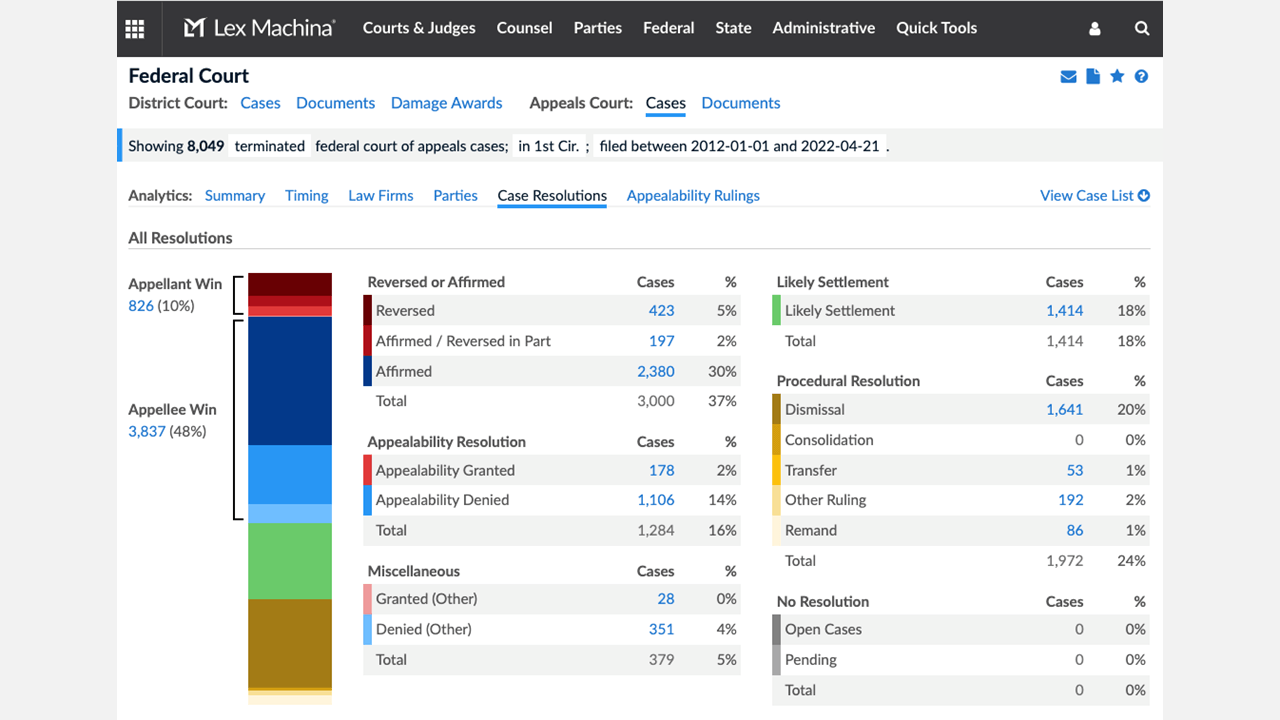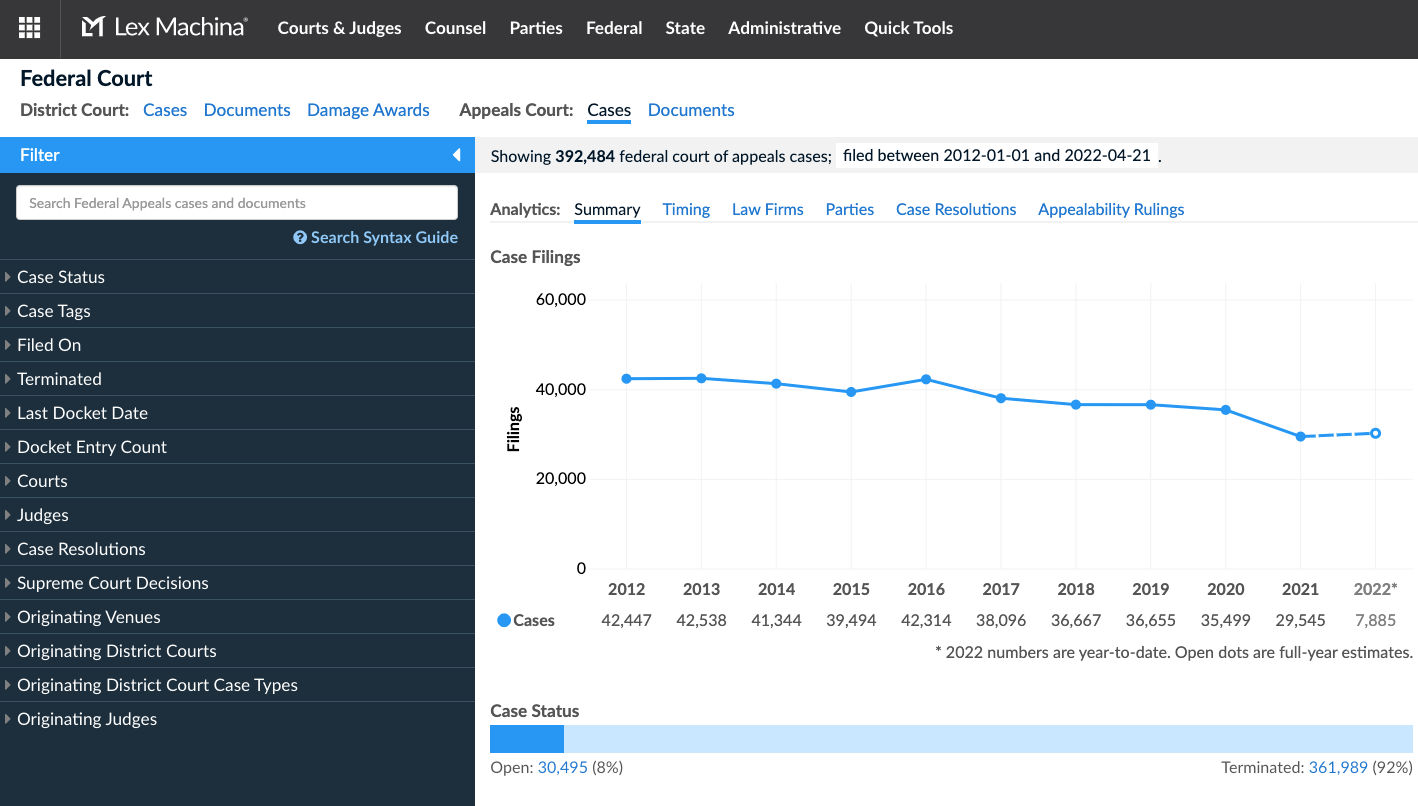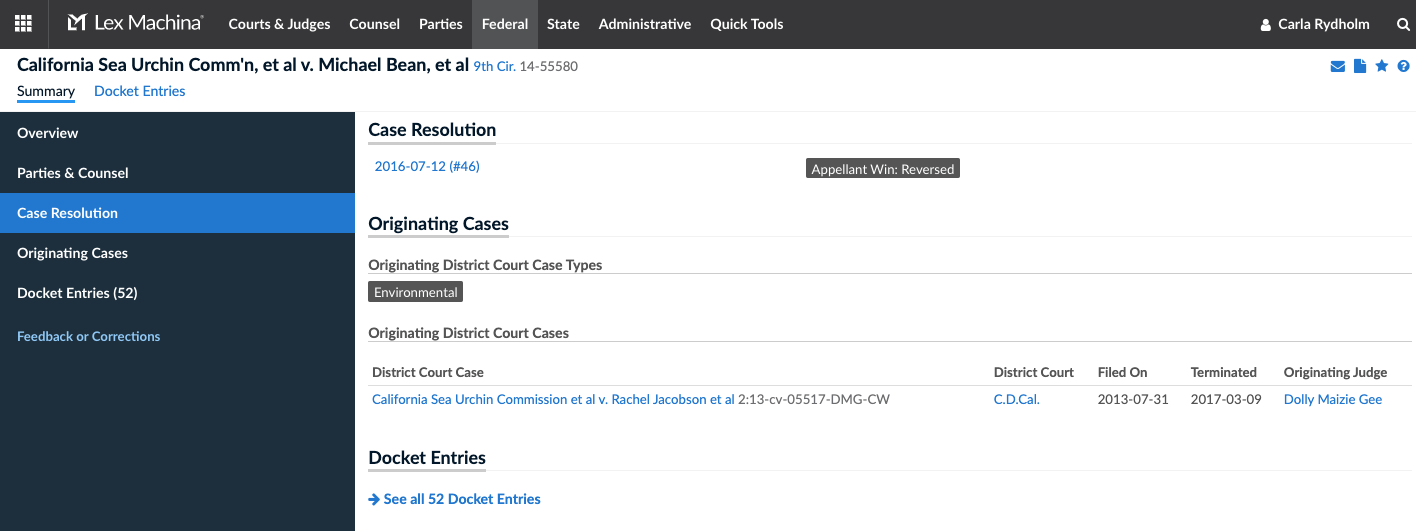In a notable expansion upward in the judicial hierarchy, the legal analytics platform Lex Machina, which is owned by LexisNexis, has launched Appellate Analytics — legal analytics for federal courts of appeals — giving users an end-to-end overview of what happens during litigation, from trial all the way through appeal, and enabling legal professionals to better evaluate the timing and outcomes of appeals in specific types of matters and specific federal circuits.
Appellate Analytics covers nearly 400,000 circuit court cases from all 13 federal circuits, and also includes some 500,000 appellate briefs that Lex Machina has collected.
These analytics could be useful to an attorney evaluating whether to file an appeal or to settle, or to an attorney preparing to argue before a specific appellate judge or panel. The analytics could also help attorneys estimate timelines and evaluate potential outcomes.
As far as I can determine, this is the only product offering comprehensive analytics for federal courts of appeal, although Westlaw Edge’s litigation analytics may include limited appellate data.
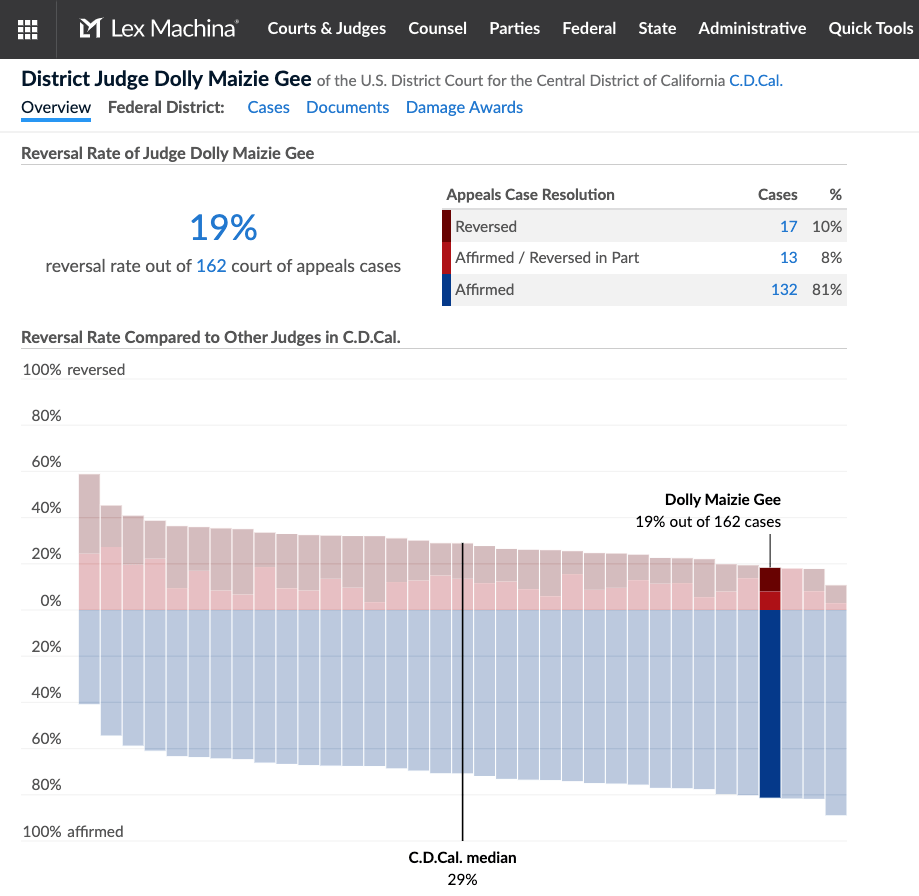
Appellate Analytics lets you see a judge’s reversal rate. Here, U.S. District Judge Dolly M. Gee of the C.D. in California has a reversal rate of 19%, which puts her at the low end compared to other judges in the district and to the median.
While the look and feel of this new offering will be familiar to anyone who has used Lex Machina, Appellate Analytics adds new analytics specific to courts of appeals. They include:
- Outcome analytics showing how cases were decided on appeal.
- Analytics on timing of appealability rulings and case terminations, showing the length of time for a court to decide on appealability or to terminate a case with a ruling or otherwise.
- Analytics for circuit court judges, law firms, attorneys, and parties, showing, for example, how a particular lawyer fared for certain kinds of cases in a specific circuit.
- Drill-down access to cases, docket entries, and documents, for both the appellate cases and the originating district court cases.
In addition to providing analytics on the appellate courts themselves, Appellate Analytics enhances Lex Machina’s analytics for district court judges. Now, for example, users can see judges’ reversal rates and track all actions in a case through final appeal.
Users can easily move from researching analytics for a district court case to the circuit court matter.
Appellate Analytics includes all civil cases from all federal circuit courts and all corresponding documents and docket entries. It also includes all the data on the trial-level case that was the subject of the appeal.
It does not include Supreme Court cases and documents, but it does track outcomes at the Supreme Court. Thus, a user could see how often a circuit’s rulings in specific types of matters were reversed or upheld by the Supreme Court.

This image shows a federal district court case with Lex Machina’s practice area specific outcome coding vetted through appeal. It shows that the environmental findings made on a judgment on the pleadings were reversed and the case proceeded to a dispositive ruling at summary judgment.
The available analytics include data on specific circuit judges. Since federal dockets do not list the judges on a panel who decided an appeal, Lex Machina extracted the names from the opinions.
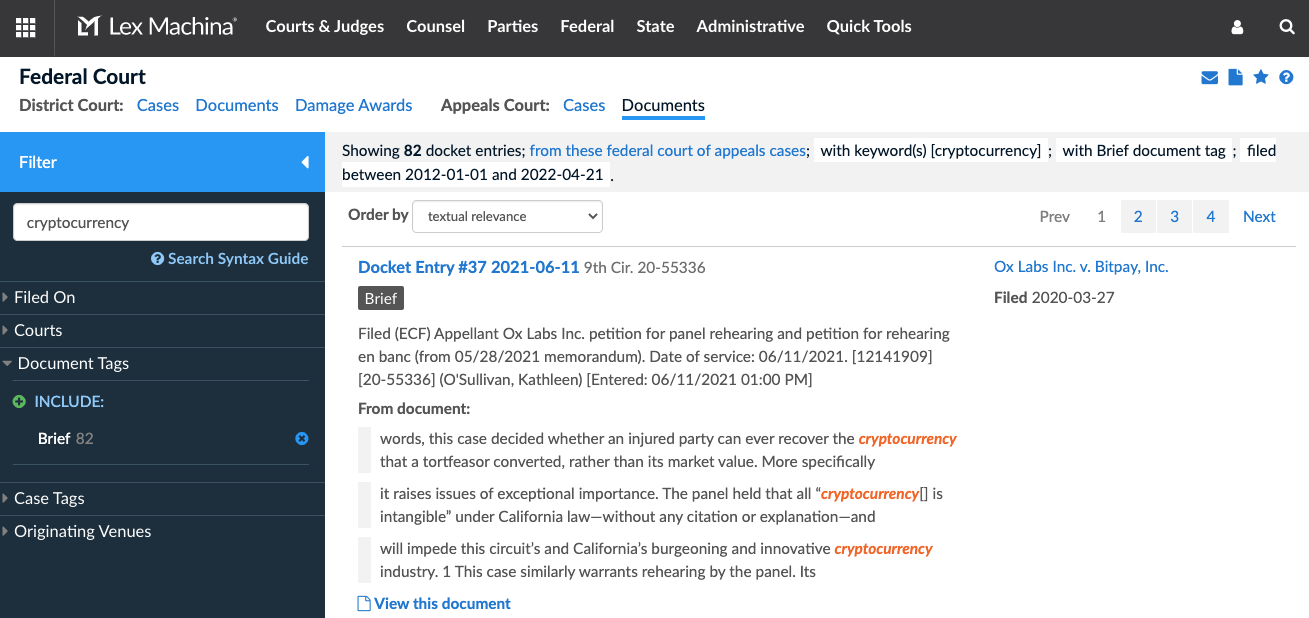
This image shows a search within Lex Machina’s collection of over 500,000 briefs and over 50,000 opinions.
“Appellate Analytics unlocks a whole new world of analytics and insights for customers,” said Wade Malone, director of product management at Lex Machina. “Appellate Analytics brings two major upgrades to Lex Machina: First, bringing Legal Analytics to a new, important court system, allowing users to answer many of the questions they’ve been able to answer about district court for years. Second, enhancing the district court analytics users already love, such as outcome analytics and judge behavior, to provide even more insights and granularity.”
Access to Appellate Analytics will be available to customers who have Lex Machina’s Enterprise package.
 Robert Ambrogi Blog
Robert Ambrogi Blog